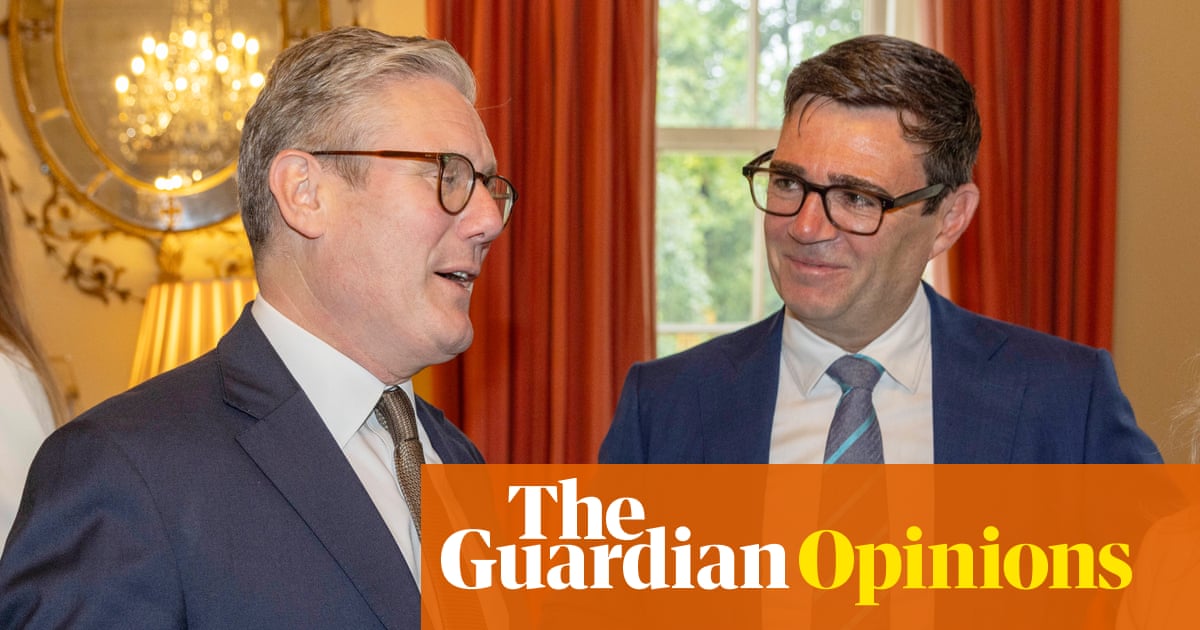Does Britain need another leftwing party? If you’re not on the left – or if you are, but consider yourself a realist – then the answer may seem obvious. This is a conservative country, you probably believe, in its underlying political assumptions, electoral system and media biases. Any party that doesn’t fit these is put under intolerable pressure. It always splinters, shrinks and collapses, sooner or later.
If even the Labour party, in which radical leftwingers are only ever a minority, is still fundamentally unacceptable to many voters and powerful interests – as the right’s constant outrage at Keir Starmer’s occasionally egalitarian government demonstrates – then what chance does a less established, more disruptive party than Labour have? Over the past half century in particular, ever since Margaret Thatcher successfully undermined socialism’s legitimacy as a mainstream belief system, the space for leftwing politics has sharply contracted in this country. Britain has become one of the world’s least left-tolerant democracies.
A string of socialist parties have been formed, from Respect to Left Unity to the Socialist Labour party, their expectations sometimes sky high, but then rapidly scaled down. Factionalism, personality clashes and ideological differences – often worsened by the claustrophobia of doing politics in siege conditions – have further doomed these parties to frustrated termination, or the humiliation of lingering on, but on a tiny scale. To many people across the political spectrum, the British radical left is best known as the butt of jokes about self-sabotage, delusions and impotence. Tellingly, fewer such jokes are made about the radical right. From Robert Jenrick to Reform UK, the realisation of its dreams seems less amusingly far away.
Over the past two turbulent months, Zarah Sultana and Jeremy Corbyn’s new party has sometimes seemed to be following these depressingly familiar patterns. Despite the decades of experience of those involved in previous leftwing projects, wearily familiar mistakes have been made: public rows, a lack of robust party structures, protracted internal stalemates and sudden, counterproductive outbursts by leading figures. One strategist who has been helping build the party for more than a year says they now feel “misery and rage”, and have stepped away.
Yet, to feel nothing but despair (or delight) at the problems of Your Party is to look at British politics in an orthodox and narrow way. The less common but necessary question to ask about the struggles of such projects is whether they are stunting not just the left but our politics more generally – at a time when it desperately needs to change.
Britain, it is widely thought, is in a period of social and economic crisis as bad as those of the 1930s and 1970s. But, unlike then, much of the public is politically disengaged. Election turnouts are lower, politicians are seen as more similar to each other, and political cynicism and avoidance reign. Even to talk about politics in a public place, such as a pub, can lead to strangers grumpily asking you to talk about something else. As the perceptive political and cultural theorist Mark Fisher used to say, Britain has a depressed economy but boom-time politics: complacently repetitive, ideologically limited – a holdover from the relatively comfortable and depoliticised early 21st century.
The three most popular parties – Reform, Labour and the Tories – are ever tougher on crime and immigrants, and deferential to big business. All three prioritise the same socially conservative voters. All three believe that economic growth can be driven by deregulation and the City of London, as though the 2008 financial crisis never happened.
The lack of an effective leftwing party since then – with the brief exception of the best days of Corbyn’s Labour leadership in 2017 and 2018 – is one of the main reasons our politics is so stuck and angry. Without a party that seriously addresses this country’s socially corrosive inequality, the exploitative and dysfunctional character of the privatised utilities and wider British capitalism, and the racist myths that dominate the debate about immigration and multiculturalism, mainstream politics will continue to move rightwards without solving, and often inflaming, the problems it claims to be addressing.
The Lib Dems present their anti-authoritarian, centrist politics as a way out of this cycle. But a party that also says farmland should be “exempt from inheritance tax”, despite the wealth of many landowners and the funding crisis in public services, clearly has limits as a challenger to the status quo.
The Greens, under their new leftwing leader, Zack Polanski, look better suited to that role. He attacks elites and defends the vulnerable with more aggression than his party has previously, and it is attracting activists and thinkers who used to be aligned with Corbynism, such as James Meadway and Michael Chessum. Helped by Your Party’s turmoil, Green membership has grown to almost 80,000.
after newsletter promotion
And yet, 10 times that many signed up on the Your Party website this summer. Many leftists are still making up their minds about which party, if any, might satisfy their hopes. As the former Your Party strategist tells me, “Conditions are even more favourable for a new party now than last autumn” when serious work on the project began. “Labour is even lower in the polls.”
In recent days, Sultana and Corbyn have made conciliatory public statements. Your Party remains in a contradictory state: tense, ready to explode into conflict again, yet also a half-formed party of rare potential. Corbyn said on Tuesday, “I’m getting … massive numbers of messages saying: ‘When’s the [founding] conference? Get on with it, I want to go out campaigning and I want candidates and I want to see you in the local elections [next May].’”
With few energising political movements around, it’s possible that the conference, now scheduled for 29 and 30 November, or public rallies featuring Corbyn and Sultana – both speakers with big followings – could make the in-fighting of the past two months fade away. With the electorate restless and fragmented, Your Party could win local and parliamentary contests, and establish itself as a leftwing party with leverage, as sometimes exists in continental Europe: a participant in coalition governments, or at least a party that forces centrist rivals to the left.
Yet some Your Party activists fear its credibility has been too damaged and its promise of a bottom-up, non-factional politics too diluted for the project to succeed as originally hoped. “A shadow of what it could have been”, as one organiser puts it. If he’s right, many in mainstream politics will celebrate.
But he hasn’t stopped working for the party quite yet. The large minority of leftwing Britons need a party that explicitly represents them, he says. If not now, when?
-
Andy Beckett is a Guardian columnist

 3 months ago
77
3 months ago
77

















































